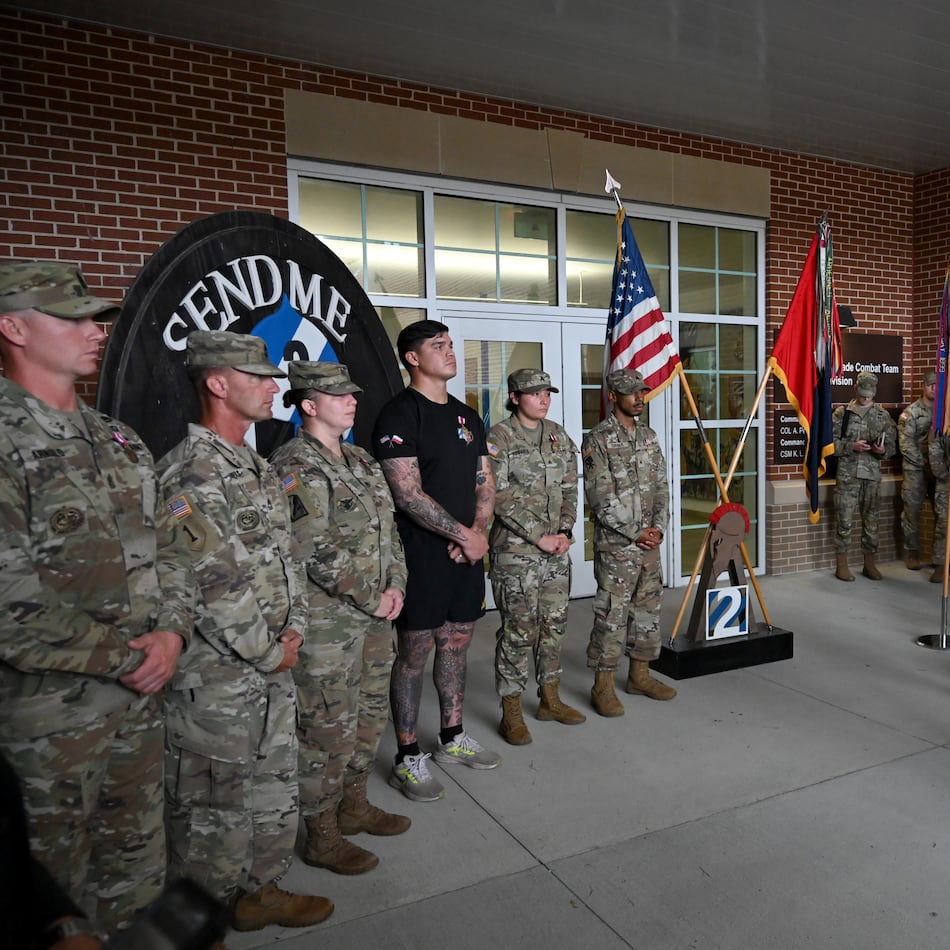When an active member of the U.S. Armed Forces is accused of committing a crime, they are typically prosecuted within the military’s own justice system.
Modeled on federal law, the Uniform Code of Military Justice governs the process.
A criminal case in military court plays out much like one in civilian court, though there are some key differences. For example, the military judges, prosecutors and public defenders are specially trained licensed attorneys in active service. They are called judge advocates general, or JAGs.
The Atlanta Journal-Constitution asked four former JAGs who now privately defend accused service members in military court to explain how those cases are handled. Here are the takeaways.
Only service members are tried in military court
The military has jurisdiction over active service members accused of committing a crime, regardless of where the crime occurred.
“Generally speaking, if an active-duty service member goes off base and commits a crime, almost always, the military will take the lead over the investigation as well as the prosecution,” said Gerry Healy, a former U.S. Marine JAG with a law firm in South Carolina.
The military’s jurisdiction does not extend to civilians, even when a civilian is accused of committing a crime on a military base or in a way that otherwise involves the military. In that scenario, the civilian would be subject to federal prosecution.
In certain situations, the military works with outside law enforcement agencies who might also have some jurisdiction over or involvement in the investigation of a crime in which a service member is a suspect.
Military court is open to the public
Most military bases have a courtroom where criminal cases against service members are tried. Hearings in military court are generally open to the public, with the caveat that access to the base is a prerequisite.
Matthew Schwartz, a former U.S. Air Force JAG based in Macon, said the military can seek to use a civilian courtroom to try a criminal case against an active service member. That might happen if there is enough public interest in a case, he said.
A judge might also use remote conferencing technology to allow greater public viewing of some hearings in military courthouses, Schwartz said.
There is no indictment by grand jury or bond
In most civilian criminal cases, a grand jury of U.S. citizens considers initial evidence of a crime and determines whether prosecution is warranted. In military cases, that task typically falls to a senior JAG.
Mike Hanzel, a former U.S. Navy JAG with a law firm in South Carolina, said that lawyer makes a recommendation to military prosecutors, who ultimately decide whether to prosecute a service member in court.
Serious cases are prosecuted by the Office of Special Trial Counsel within each military service.
A defendant can be held in pretrial confinement, typically in a military facility. They can seek release, but there is no bond payment system.
A senior JAG is typically tasked with determining whether a defendant is held in pretrial confinement, Hanzel said. He said the officer can release a defendant but impose certain limitations, such as staying on base.
Defendants can choose trial by judge or jury
In the military, a trial is called a court-martial.
A defendant typically first appears before a military judge for the equivalent of an arraignment hearing, which sets out the charges, the defendant’s rights and basic scheduling.
A defendant can choose whether the judge or a panel of service members decides their guilt or innocence.
Military judges are usually senior JAGs with at least 15 years of service, Hanzel said.
A panel acts like a jury but does not have to reach a unanimous verdict unless the defendant faces the death penalty. In most cases, a three-fourths verdict is enough to convict.
Greg Rinckey, a former U.S. Army JAG and federal prosecutor based in New York, said panels tend to comprise nine to 12 service members picked at random. Like in civilian jury trials, the prosecutors and defense lawyers can argue against certain people being selected.
Rinckey said a defendant can ask for their case to be transferred to a different military court if they feel they won’t get a fair trial at their post. He said a unique aspect of a military trial is that panel members can ask questions in court, with approval from the judge.
Punishments can be higher
Under the Uniform Code of Military Justice, a service member can face harsher penalties on conviction of a crime than if they were prosecuted in a civilian court.
Typically, sentences for crimes that are not military-specific, such as murder, mirror those in federal law. For example, service members can be sentenced to death or life in prison without parole.
But the military code allows additional adverse actions to be taken against convicted service members that civilians aren’t subject to, including dishonorable discharge from the military.
“When you’re sentenced in the military, you kind of get a triple whammy,” Rinckey said. “Not only do you get the (prison) confinement, you’re also a convicted felon, because a court-martial conviction is a felony conviction. You’re also stigmatized with a punitive discharge.”
Appeals first go to a panel of military judges but can be escalated to panels of federal judges. Certain cases can reach the U.S. Supreme Court.
About the Author
Keep Reading
The Latest
Featured




